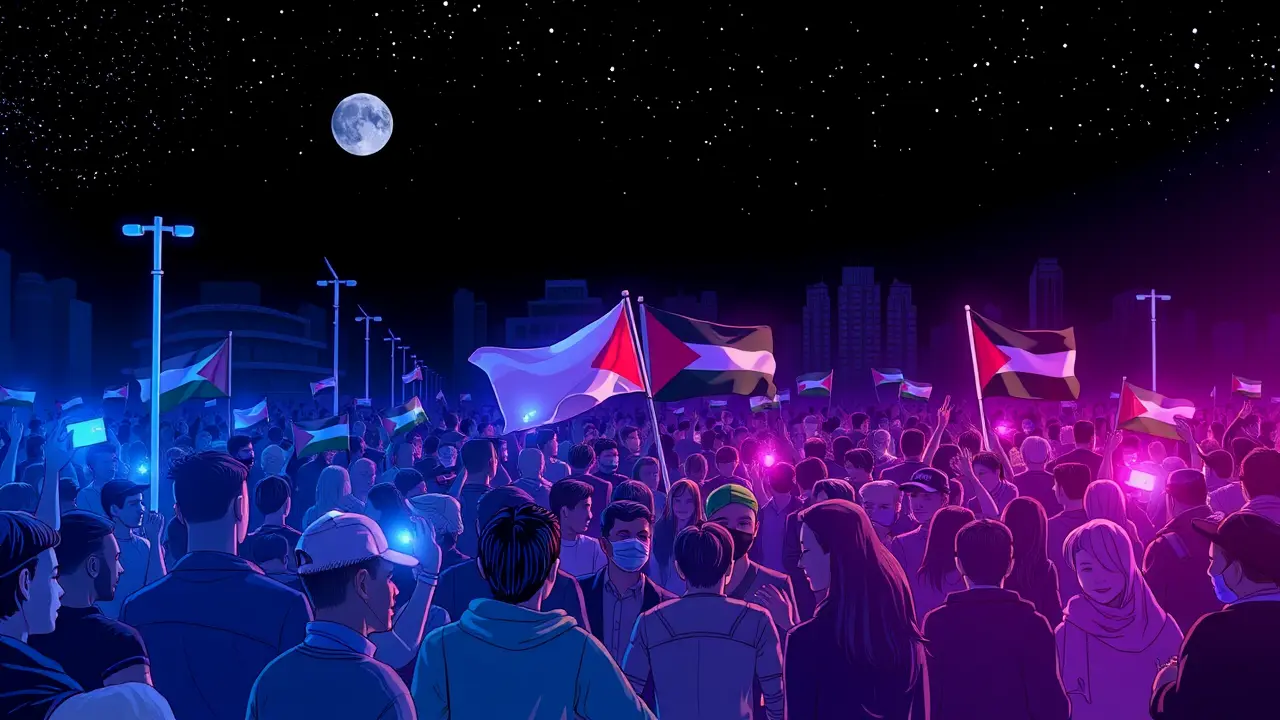Hope and Grief in Israel After Gaza Ceasefire Deal
The news hit like a physical wave, washing over Hostages Square in Tel Aviv and transforming a vigil of anxious waiting into a scene of unimpeded joy overnight. It was a raw, human reaction to a fragile thread of hope: a ceasefire deal for Gaza had been brokered.For the families who had maintained a silent, desperate vigil, their faces etched with the unique grief of not-knowing, the announcement was a lifeline. This was not an abstract political victory; it was the potential return of a son, a daughter, a parent, their absence a constant, gnawing void in the lives of those left behind.I’ve covered global crises from the refugee camps of Eastern Europe to the protest lines in South America, and the emotional topography of such moments is always a complex, contradictory landscape. The sheer, unadulterated relief seen here, the tears of happiness, the embraces that seemed to hold a universe of fear and hope, stand in stark contrast to the simmering anger and profound sorrow that will undoubtedly remain long after the cameras leave.This deal, while a crucial humanitarian step, is not a conclusion. It is a comma in a sentence of enduring conflict.The details, as they always are, are everything—the number of hostages to be released, the duration of the pause in hostilities, the aid allowed into the shattered Gaza Strip. Each point is a delicate negotiation, a balance of human life against political and military leverage.We must remember the context: this conflict did not begin on October 7th, nor will it end with this agreement. The roots run deep, tangled in decades of territorial disputes, failed peace processes, and cycles of violence that have conditioned generations to view the other not as a neighbor, but as an existential threat.The grief on the other side of the border is just as profound, just as valid—the families in Gaza mourning the thousands lost under bombardment, their homes reduced to rubble, their lives irrevocably broken. A ceasefire, however temporary, offers them a respite, a chance to bury their dead, to find water and food, to simply breathe without the constant roar of warplanes.Yet, the underlying issues—the status of Jerusalem, the right of return, the blockade, the security concerns—remain unaddressed, ticking bombs beneath a very thin layer of calm. The international community, from Qatar and Egypt who mediated to the United States applying pressure, has played its part, but the true test will be in the days and weeks that follow.Will this pause build trust, or will it simply be a re-arming period for the next, inevitable confrontation? History in this region is not encouraging; ceasefires have often been mere intermissions. The challenge for leaders on all sides is to leverage this moment of fragile hope, to use the humanizing power of reunited families to build a bridge, however narrow, toward a more lasting solution.For now, in that square in Tel Aviv, the overwhelming emotion is relief. It is a testament to the human spirit’s resilience, its ability to find a sliver of light in the deepest darkness. But walk through the crowds, and you will also see the shadows—the faces of those whose loved ones are not on the initial list, the activists who fear this deal lets a destructive status quo off the hook, and the silent, grim acknowledgment that this is likely not the end, but a painful, complicated, and desperately needed moment of pause in a long and tragic war.
It’s quiet here...Start the conversation by leaving the first comment.
© 2025 Outpoll Service LTD. All rights reserved.
